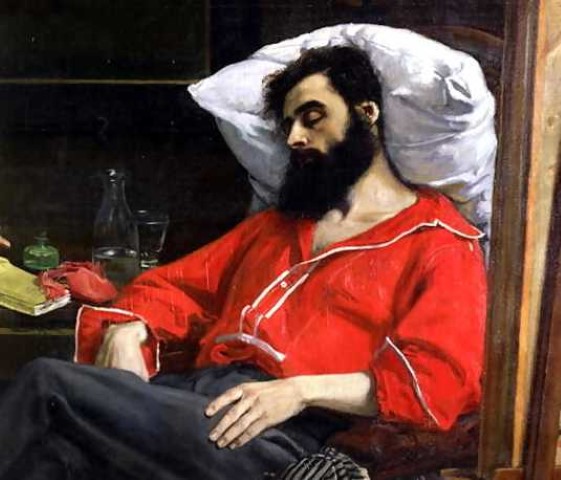
This is a classic novella by Leo Tolstoy. I recently saw it recommended in a list of novels, short stories, and essays that explore Biblical themes.
My wife and I read a little each evening for a couple of weeks, usually one chapter per night. Tolstoy wrote it with a good pace so, although it would have been easy to finish in one sitting, it was enjoyable to come back to it each night.
Tolstoy’s style is unique, and in this short work he is exploring a difficult theme. By going beneath the surface into Ivan’s (the main character) psyche, Tolstoy helps the reader think about something most overlook until old(er) age: death.
The point: death is a reality for everyone
Tolstoy’s point is that people avoid, to their harm, the inevitability of their own death.
Tolstoy proves this point by telling the life’s story of the man whose funeral the narrative opened up with: Ivan Ilyich.
The Narrative
The narrative opens up on Ivan’s funeral, with the idea that people who attend funerals do not want to be there. That is clear through the interactions between two of the guests and Ivan’s widow, Praskovya. The guests don’t want to be there because they don’t want to consider the reality of death, and even less so their own deaths.
Ivan has a good life, a good job, and he’s driven to improve his life, and the lives of his family, even more. There is a nearly constant undercurrent of dissatisfaction, as if Ivan thinks that there must be more to life. So he keeps looking for it, keeps pursuing that next job, and that next pay raise.
The problem is that in the process of working to make his life the best it can be, and live comfortably, he gives no thought to the inevitability of death. When he gets injured during a home remodel, and the injury does not improve but instead grows worse, Ivan’s perceived comfortable life unravels.
I will not spoil any more of the narrative, but I will say that the end is not pretty. And I think that is Tolstoy’s intention: to show that death is a nasty, difficult, troubling reality. As such, to avoid its inevitability is the height of foolishness.
God’s Perspective?
What does God say about death, specifically the death of humans? First He acknowledges its inevitability:
“And just as it is appointed for man to die once, and after that comes judgment…”
Hebrews 9:27 (ESV)
Death is a nasty enemy for every human being.
But God didn’t just acknowledge the inevitability of death, and its destructive power. He didn’t say, “Well, sorry guys, you have to deal with death now, and that’s just tough. Good luck!” He planned and accomplished a solution.
Jesus Christ experienced death, and the sin that brought death into existence, on behalf of those He has called to salvation. He suffered through death, but didn’t stay dead.
Three days after His death God the Father raised Jesus of Nazareth back to life. He will never die again:
“We know that Christ, being raised from the dead, will never die again; death no longer has dominion over him.”
Romans 6:9 (ESV)
As believers we are free from the eternal dominion of death. When our life here is done and we approach death, it has no bite. Christ has removed the fangs of death! For us, death has been defeated. Now it only marks our departure from this temporal life on a sin-cursed earth and our embarkation into the unending presence of Christ.
Conclusion
There are several sub-themes in the story that I have glossed over. The compassion of Gerasim, Ivan’s young butler, and the vanity of Ivan’s daughter and wife, are just a few additional ideas Tolstoy explores.
These are all ideas that Scripture speaks to, and it was enjoyable to read through this novella encountering these themes, and talk through a Scriptural perspective with my wife.
I want to read more of Tolstoy, so if you have recommendations for me leave them in a comment below!
You can pick up Tolstoy’s novella here: The Death of Ivan Ilyich.